
India must strengthen ties with Vietnam
Latest
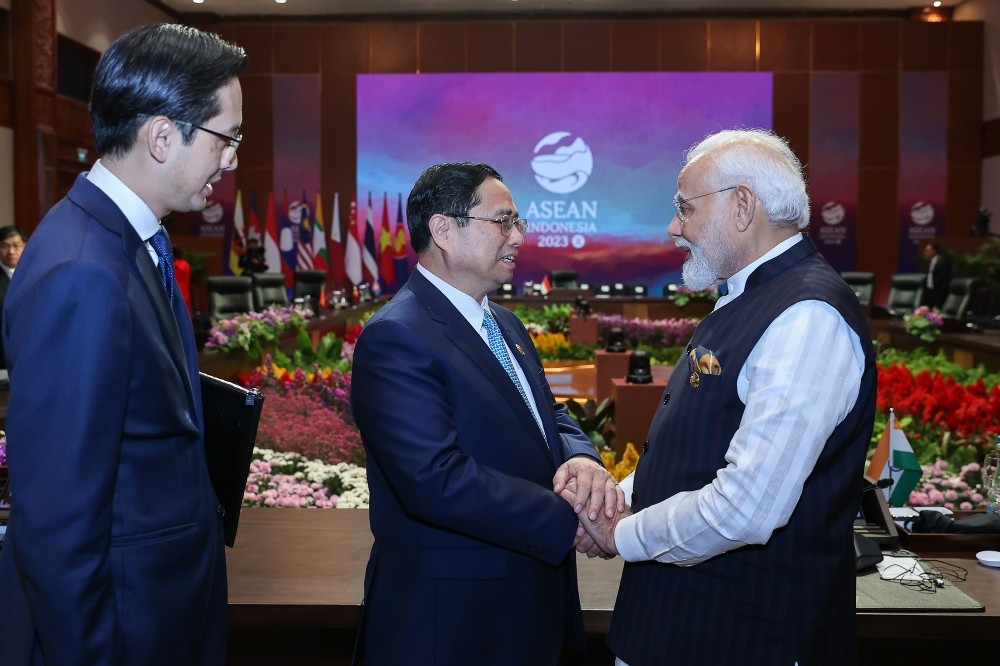 |
| Prime Minister Pham Minh Chinh meets Indian Prime Minister Narendra Modi on the occasion of attending the 43rd ASEAN Summit and related conferences in Jakarta, Indonesia, September 7, 2023. (Photo: VNA) |
All history is a travelogue of time. “Main samay hoon” (I am time) was the famous opening line of Mahabharat, the TV serial that took the nation by storm in the late 1980s — the line encapsulated the eternal message of the great Indian epic. It showed that time is both a teacher and a healer.
Time’s healing power is truth, which triumphs over the arrogance of falsehood. Justice struggles incessantly against injustice and emerges victorious. War submits to peace. Construction follows destruction, and reconciliation replaces rancour.
When that happens, battlefields make way for schools, universities, hi-tech industries, verdant rice fields, sports stadiums, bustling markets, and enchanting tourist resorts.
Come to Vietnam to see how history heals and rejuvenates.
The brave and freedom-loving Vietnamese first fought against French colonial rule (1887 to 1954). The French justified their imperialism by claiming they were on a “civilising mission”. In the first Indochina War from 1946 and 1954, they killed nearly 200,000 Vietnamese, but eventually left after a shattering rout at the Dien Bien Phu airbase.
Then came the mighty Americans, only to suffer a humiliating defeat after 20 years. They justified their war by claiming it was necessary to turn back the “tide of communism” in Asia. Nearly five million Vietnamese were killed, four-fifths of them civilians. Over 58,000 American soldiers too perished, and their names are inscribed in the Vietnam Veterans Memorial in Washington, D.C. The US dropped three times as many tonnes of bombs on Vietnam as the Allies dropped in all of WW II.
| TIN LIÊN QUAN | |
| Festival of Lights – Diwali: Indian community in Vietnam ready to celebrate the success in 2023 | |
We Indians must not forget that French and American bombs destroyed many exquisite Hindu temples built by Champa kings between the 4th and 14th centuries in central Vietnam. Between 1961-71, the US sprayed 13 million gallons of Agent Orange, a deadly chemical weapon on forests and farmland. This caused cancer and birth defects on a shocking scale, which can be seen even today.
To know the horrors committed by the US military, visit the War Remnants Museum in Ho Chi Minh City (formerly Saigon). To see the incredible bravery and ingeniousness of Vietnamese guerillas, come to Cu Chi Tunnels in a forest on the city’s outskirts. Here, they have dug a 240-mile-long labyrinth of underground trenches in three layers, complete with military barracks, hospitals, conference halls, and dining rooms.
In February 1979, Vietnam had to fight another brief war when China launched an attack to “teach” its southern neighbour a lesson. The war ended after a month, with China withdrawing its troops.
Today, Vietnam is a miraculously transformed nation. With the realisation of its two major goals — independence (from colonial rule) and unity (reunification of the northern and southern parts of the country) — the memory of wars has been cleansed of all bitterness towards the aggressors. Vietnam now enjoys friendly relations with both the US and China.
In Hanoi, I asked Mr. Ton Sinh Thanh, who served as Vietnam’s Ambassador to India: "How do Vietnamese see their history of wars?". In words that carried the wisdom of Buddhism, the main religion of Vietnam, he replied, “We haven’t forgotten anything, but forgiven everything. We do not want to remain obsessed with the past. We are now more focused on building a bright future for our Fatherland, for which we need peace and development.”
Vietnam knows that peace with neighbours and cooperation with all is indispensable for creating a future of happiness for its people. “If the country is independent but its people don’t have happiness and freedom, then independence is meaningless”. These sage words of Ho Chi Minh, the father of the nation, serve as the guiding principle for the ruling Communist Party and Government.
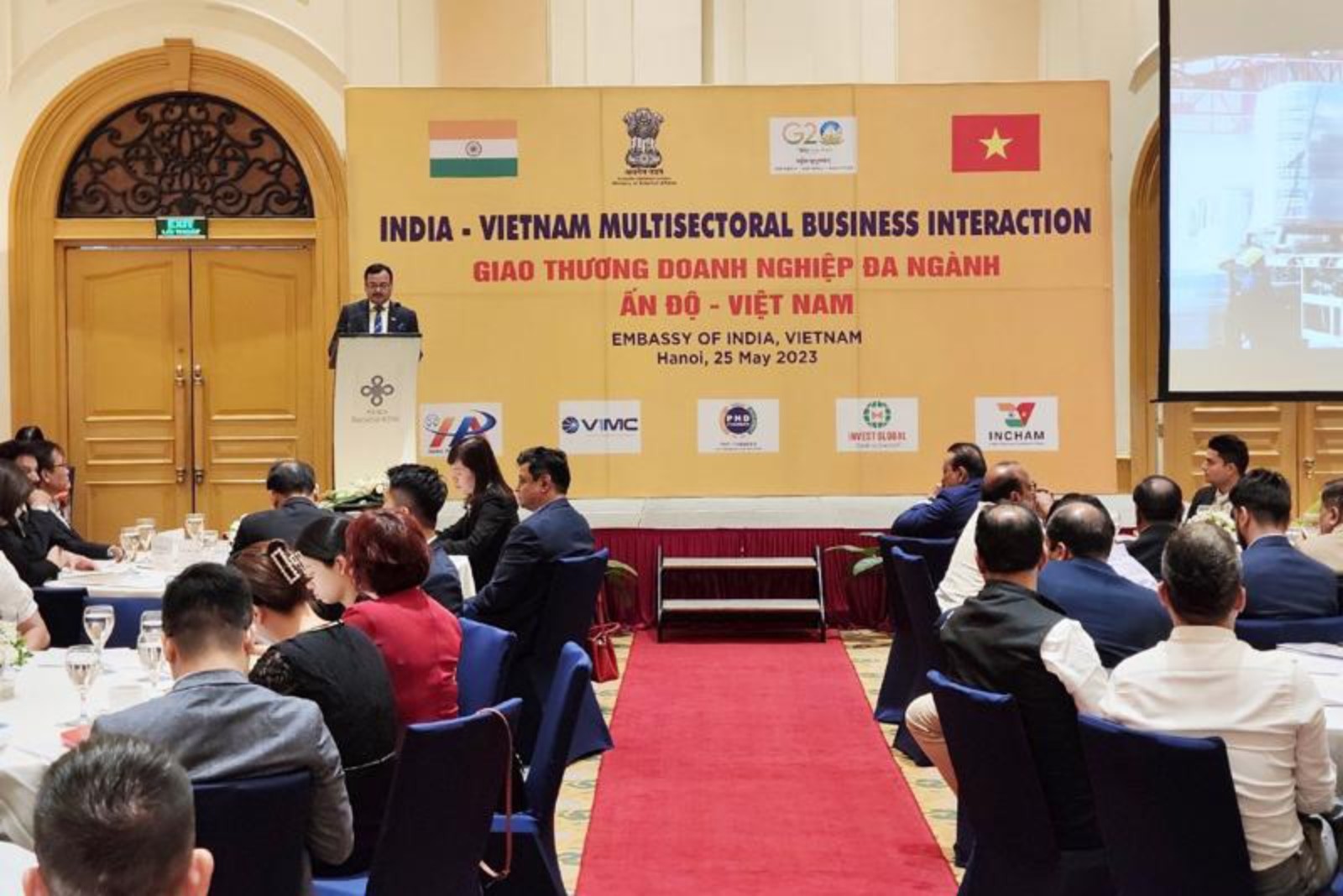 |
| India - Vietnam multisectoral business interaction held by Embassy of India in Vietnam on May 25, 2023. (Photo: Incham) |
To secure peace, in 2019, it wisely adopted a defence policy of “Four Nos” — No to joining any military alliance; no to siding with one country to counter another; no to foreign military bases or use of Vietnam’s territory to counter a third country; and no to use of or threat of force in international relations.
Vietnam embarked on economic reforms (called ‘Doi Moi’) in 1986. The results have been spectacular. Per capita income has gone up from 100 USD in the 1980s to 4,300 USD in 2023, which is 16 per cent higher than India’s. Exports have soared from 2 billion USD in 2001 to 375 billion USD now. The poverty rate has dipped below 3 per cent.
However, several well-placed Vietnamese I spoke to have a grievance towards New Delhi. They politely said that India does not pay enough attention to expanding trade and business relations with a resurgent Vietnam. The grievance is valid. India is resisting a Free Trade Agreement with Vietnam, which can boost bilateral trade from 15 billion USD to over 50 billion USD in five years (Vietnam-China trade has surged from 2.4 billion USD in 2000 to more than 175 billion USD in 2022). In 2023, top leaders of the two countries have not yet made any official visits.
Ambassador Thanh summed it up well. “Our two countries enjoy the best of political relations. We have never had any conflict, either in history or in modern times. The people and Government of Vietnam are very happy that India is rising as a major power in Asia and the world. Yet, New Delhi seems more comfortable looking west than east. If it wants to reap the enormous opportunities Vietnam provides — and also if it wants to enlarge its influence in the wider Indo-China and ASEAN region — India should not only Act East, but also Act Fast.”
------------------
*The writer was an aide to former Indian Prime Minister Atal Bihari Vajpayee, expressing his own view.
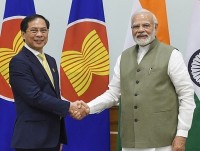
| Vietnam is the anchor in India’s Act East strategy in Asia: Expert Professor Rajaram Panda shed light on Vietnam-India relations, bilaterally and multilaterally during his short interview with The World & Viet Nam Report to celebrate the ... |
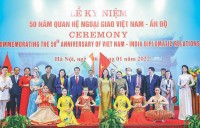
| Important milestone, bright prospect in India-Vietnam relations WVR - Diplomatic relations between India and Viet Nam were established in 1972. However, the two countries have been connected through millennia old civilizational links ... |
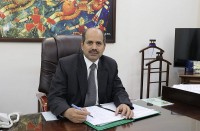
| Vietnam’s growth story makes waves worldwide: Indian Ambassador High economic growth rate and rapid digital transformation in Vietnam and India have generated huge opportunities for both to take greater strides in economic cooperation. |
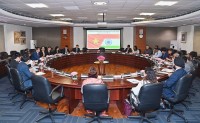
| 3rd Vietnam-India Maritime Security dialogue held in Delhi WVR - During the dialogue, the two sides conferred on ways to sustain a secure maritime environment conducive for inclusive growth and global well being. |
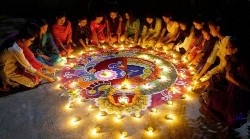
| Festival of Lights – Diwali: Indian community in Vietnam ready to celebrate the success in 2023 WVR - Held in November each year, when the scorching heat of summer has passed and the cool breeze fills the air, Diwali is a ... |

















